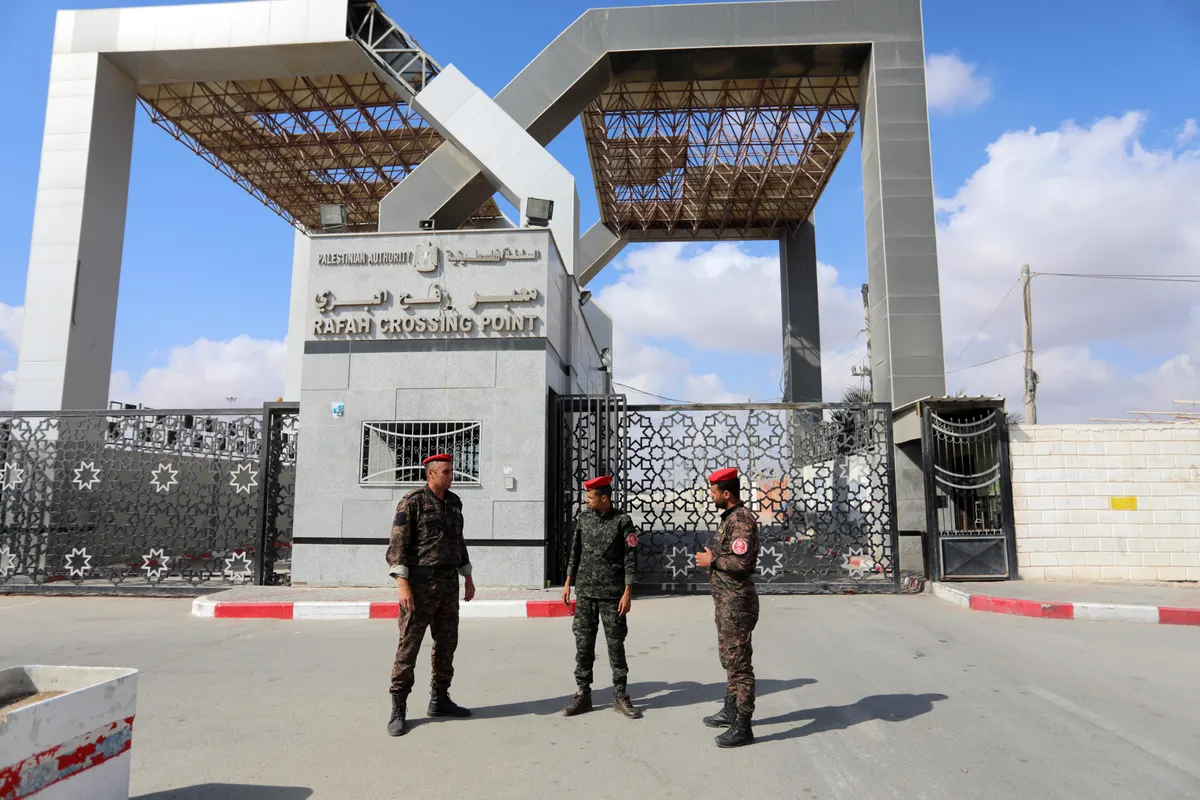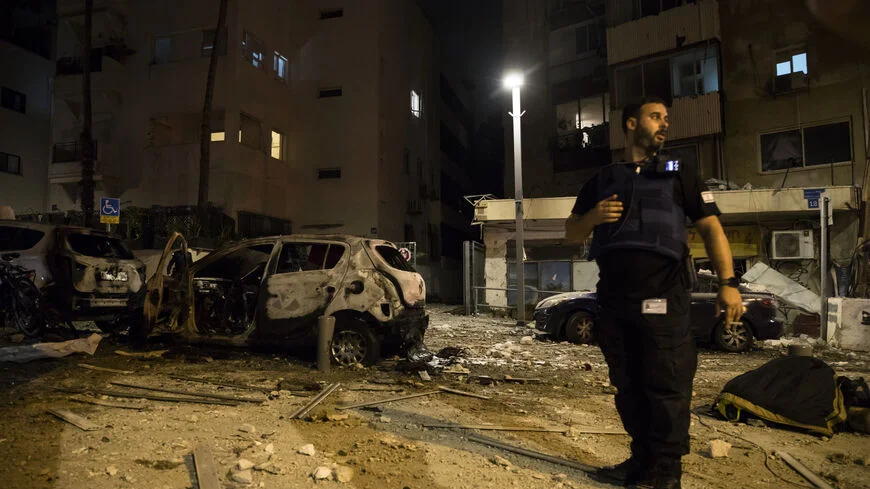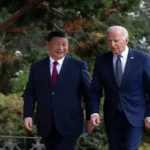A sudden upheaval in the Middle East, with unforeseen consequences, following the recent Hamas crisis and unpredicted attack on Israel. Global powers respond with uncertainty, and the world witnesses the emergence of a new geopolitical order.
A Summer of Hope Shattered
May 1914 appeared idyllic, akin to calm waters under clear skies. Sir Arthur Nicolson, a senior diplomat, noted unparalleled tranquility. However, the world soon descended into chaos following the assassination of Franz Ferdinand in Sarajevo. Europe plunged into war, soon spreading to Asia and Africa.

Austrian Archduke Franz Ferdinand and his wife, Sophie, duchess of Hohenberg, in an open carriage at Sarajevo, Bosnia and Herzegovina, shortly before their assassination, June 28, 1914.
In four short years, millions perished, and Russia convulsed into revolution. The era of European empires drew to a close, albeit briefly for some, like the British. No one foresaw these events.
Tragedy Strikes: The Unpredicted Attack and Hamas Crisis
Once again, history repeated itself. A mere two weeks earlier, Jake Sullivan, the US national security advisor, spoke optimistically about the Middle East’s newfound stability. On September 29th, he hailed the Middle East as “quieter than it has been in two decades” at the Atlantic Festival.
Biden National Security Advisor Jake Sullivan (last week): "The Middle East region is quieter today than it has been in two decades" pic.twitter.com/59MYUXhmHf
— RNC Research (@RNCResearch) October 7, 2023
But eight days later, Hamas launched an attack resulting in more Jewish deaths in a day than the Holocaust. Describing the horrors seems almost futile, from the cold-blooded massacre of festival-goers to the taking of hostages, including women, children, and the elderly.

Horrified rescuers find 260 bodies at Israel music festival after Hamas terrorists ‘cut power and started opening fire’
Their lives currently teeter on the precipice as Israel’s reaction intensifies. The retaliation is haunting, with missile strikes toppling multi-story buildings.
Global Consequences: The Unfolding Chaos
Israel’s military forces laid siege to Gaza, compelling over a million people north of Wadi Gaza to evacuate southward. The plight of the young, elderly, and infirm remains unclear, trapped in an already densely populated region.
Borders with Egypt stand closed, and the Egyptian government has not established safe civilian corridors. Hamas urges people to remain steadfast, yet the impending hours, days, and weeks are uncertain, foreshadowing a looming humanitarian crisis.

Egypt closed the Rafah border crossing due to Hamas crisis after Israel started bombarding Gaza.
Initially, it seemed that Israel and Gaza would bear the brunt of these Hamas crisis. However, signs of escalation are surfacing. While US intelligence had initially linked Iran with the attacks, the narrative has evolved. Multiple sources now suggest that Iran was taken by surprise by Hamas’s actions.
If Tehran wasn’t directly involved, it is evidently ready for a fight. Hossein Amir-Abdollahian, Iran’s foreign minister, condemned Israel’s actions, foreseeing a collective response from the “resistance axis,” particularly Iran’s client, Hizbollah.
Naim Qassem, Hizbollah’s deputy leader, bluntly rejects calls for restraint, signaling that Hizbollah’s engagement is a matter of when not if.
The Geopolitical Lens: Putin’s Perspective
Israel’s intelligence failures and a poorly coordinated military response send shockwaves through the nation, potentially reshaping its fragile political landscape.

Hamas Attack Raises Questions Over an Israeli Intelligence Failure
Reports suggesting that Egyptian intelligence had forewarned their Israeli counterparts of an impending attack raise questions. Under Benjamin Netanyahu’s leadership, Israel’s government faces scrutiny amid proposed reforms that have sparked a constitutional and political catastrophe due to Hamas crisis.
Moscow, too, watches the unfolding Hamas crisis with an interest in regional disruption. While Russia has no proven involvement in recent events, its history of involvement in Syria and collaborations with Iran pique interest.
Vladimir Putin seized the opportunity to blame US policy in the Middle East for the attacks, diverting attention from Russia’s own issues, particularly the conflict in Ukraine.
The repercussions extend far and wide. Predictably, the Saudi Foreign Ministry expressed concerns over continued occupation and provocations but did not mention the violence and murder of festival-goers and families.
Saudi Arabia’s support for Palestinians in crisis is unsurprising, overshadowing its budding ties with Israel. However, reactions from other corners of the world are intriguing.
Navigating Uncertainty: The World in Transition
In a carefully worded statement, China’s Ministry of Foreign Affairs avoids mentioning the deaths in Israel. Instead, it voices concern over escalating tensions and calls for restraint, advocating for a two-state solution. This stance, previously uncharacteristic of China’s non-interference policy, is seen as a nod to the growing influence of the Arab world and the oil-producing Gulf States intertwined with China’s economic interests.
China's stance on 🇮🇱Israel and 🇵🇸Palestine.👇
— Li Jingjing 李菁菁 (@Jingjing_Li) October 9, 2023
"The fundamental way out of the conflict lies in implementing the two-state solution and establishing an independent State of Palestine."
Full answer from China's Ministry of Foreign Affairs.https://t.co/DQ2Bz1aGfV
"China is deeply…
Beyond these geopolitics, the Hamas crisis reinforces the perception of a world in transition. The uncertainty, from new technologies to climate change, mass migration, and political polarization, hints at an impending age of darkness. Faced with such pressures, many countries lean toward growing isolationism.
Kevin Rudd‘s observation that we are “living in the decade of living dangerously,” originally applied to the US-China rivalry, resonates in the evolving global rivalries and alliances. The geopolitical landscape intensifies between the West, China, and Russia, alongside new and shifting alliances like the expanding BRICS grouping.
Just as great powers gambled on their decision-making a century ago, we face history’s mirror. As we brace for the consequences of recent events, we must heed the worst lessons of history to prevent their recurrence.




